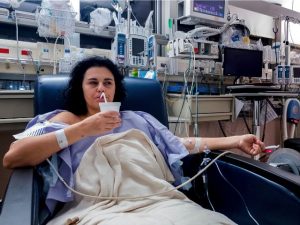ERAS Protocol Components
Some new changes in the protocol are to allow the patient to eat carbohydrates up to two hours before surgery instead of the traditional 8-12 hour fast, earlier consumption of food after surgery, and earlier walking after surgery.
Guidelines were changed after recognizing the detrimental dehydration and constipation from a prolonged fast from food or water. Electrolyte and nutritional deficiencies are also addressed in the preoperative area instead of waiting to do so in the medical-surgical unit.
Preoperative carbohydrate loading is now part of the protocol, which acknowledges the role of nutrition on wound healing and the prevention of physiological hyperglycemic stress response and insulin resistance.
Providing nutritional support may be given IV, NG, enteral, or through TPN. Carbohydrate loading may also decrease protein breakdown seen in gluconeogenesis when carbohydrates are limited.
Some of the earliest research regarding nutrition, bowel preparation and fluid management came from numerous studies of colonoscopies and colostomies. Although dietary restrictions have loosened, avoidance of cigarettes and alcohol up to 30 days before surgery is still advised as in the past.
Avoiding deep vein thrombosis is still a priority and the use of sequential compression devices and low molecular weight heparin subcutaneously is still part of the protocol. The use of oral beta blockers and alpha 2 agonists up to 1 week before surgery has gained favor as it decreases the stress response seen before and after surgery. Both are also known to decrease perceived pain, and the need for postoperative opioids.
Intraoperative use of laparoscopic surgery, when possible, promotes earlier ambulation, decreased surgical site infection, and less pain for the patient.
A single dose of a broad-spectrum antibiotic before the first knife incision and a second antibiotic infusion if the surgery extends beyond 4 hours has also shown improved post-surgical outcomes.
Using intraoperative anesthetics that have a lower ½ life help to decrease the sense of the post-surgical hangover and ability for earlier ambulation.
Helping to control perioperative nausea and vomiting (PONV) is also a focus that significantly can affect postoperative stress and recovery. Interestingly, the use of nasogastric tubes and drainage tubes have fallen out of favor as they have not been shown to improve paralytic ileus or post-surgical drainage from abdominal surgery.
In the post-surgical time period, earlier feeding and ambulation have shown decreased mortality and morbidity by avoiding sepsis, dehydration, and stress related complications. Urinary catheters are to be removed as quickly as possible to prevent CAUTI infections.









